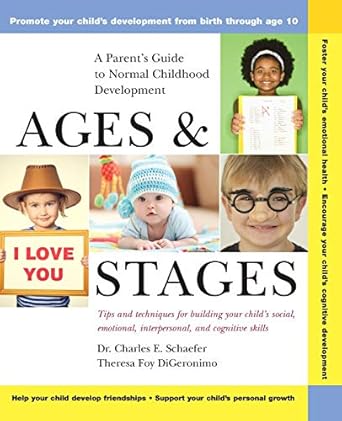Developmental Milestones: Birth to Age 5
Simple, research-informed guidance to help you understand your child’s development from birth through the preschool years.
What Are Developmental Milestones?
Developmental milestones are skills and behaviors most children can do by a certain age. They include how children move (gross and fine motor), communicate, think and solve problems, and relate to others. Milestones give caregivers and pediatricians a quick snapshot of how development is unfolding over time.
Every child grows at their own pace. Some children reach certain milestones a little earlier or later than their peers and are still developing typically. Instead of using milestones to compare children, think of them as a gentle roadmap to help you notice new skills, celebrate progress, and speak up early if you have concerns.
Why Milestones Matter
The first five years are a powerful window for brain development. During this time, children’s experiences with caregivers, play, language, and routines help build the foundation for later learning, emotional health, and school success.
Professional organizations such as the American Academy of Pediatrics (AAP) and the Centers for Disease Control and Prevention (CDC) encourage families to track development and to act early if a milestone is missing, lost, or very different from what is expected for a child’s age. If you ever feel unsure about your child’s development, it is always appropriate to:
- Talk with your child’s pediatrician and share specific examples of what you see at home.
- Ask about formal developmental screening and follow-up if needed.
- Contact your local early intervention or school district for a free evaluation if you or your provider have concerns.
Download: Birth–5 Developmental Milestones by Age Chart
Printable Milestones Chart (Birth to Age 5)
Use this simple, family-friendly chart to see common developmental milestones by age range and jot down notes or questions for your child’s next well-child visit.
⬇️ Download the Developmental Milestones Birth–5 Chart (PDF)
Tip: Print a copy for your fridge or family binder or keep a digital copy on your phone so it’s handy at doctor visits.
How to Use Milestone Charts in Everyday Life
Milestone charts are most helpful when they spark curiosity and conversation, not pressure. You might:
- Highlight skills your child is already doing and celebrate them together.
- Circle one or two “emerging” skills and brainstorm playful ways to practice them.
- Write down questions or worries so you remember to bring them up at your child’s next well-child visit.
Remember: milestones are guides, not grades. Your child’s strengths, temperament, health history, and family culture all shape the way development shows up in daily life.
Explore More: Developmental Milestones Resource Library
Ready to dive deeper? I’ve gathered a curated list of evidence-based milestone tools, checklists, and apps for families and early childhood educators.
👉 Visit the Developmental Milestones Resource Library for trusted links from the American Academy of Pediatrics (AAP), CDC’s “Learn the Signs. Act Early.” program, and more.
Milestones, Kindergarten Readiness & Everyday Play
Healthy development in the first five years lays the foundation for skills children will use in preschool and kindergarten: listening and following directions, managing big feelings, playing with others, and taking care of simple self-care tasks.
If you are wondering how to nurture kindergarten readiness in a playful, developmentally appropriate way, you might also enjoy:
🌱 Kindergarten Readiness: What Really Matters in the Early Years
Important Notes & Medical Disclaimer
This page is for general educational purposes only and is not a substitute for medical advice, diagnosis, or treatment. Always talk with your child’s pediatrician or qualified health provider with questions you may have about your child’s development, health, or behavior.
Research & Attribution: Early Learning Made Easy content is independently created and informed by evidence-based research and guidance from fields such as early childhood education, child development, positive psychology, and pediatrics (for example, resources from the American Academy of Pediatrics, CDC, and related professional organizations). This page is not sponsored by, affiliated with, or officially endorsed by any external institution or author.
Recommended Books for Understanding Child Development
These parent-friendly books offer helpful guidance on typical development from birth through the early years.

As an Amazon Associate, Early Learning Made Easy earns from qualifying purchases at no extra cost to you.





No comments:
Post a Comment
We would love to hear from you!
Note: Only a member of this blog may post a comment.